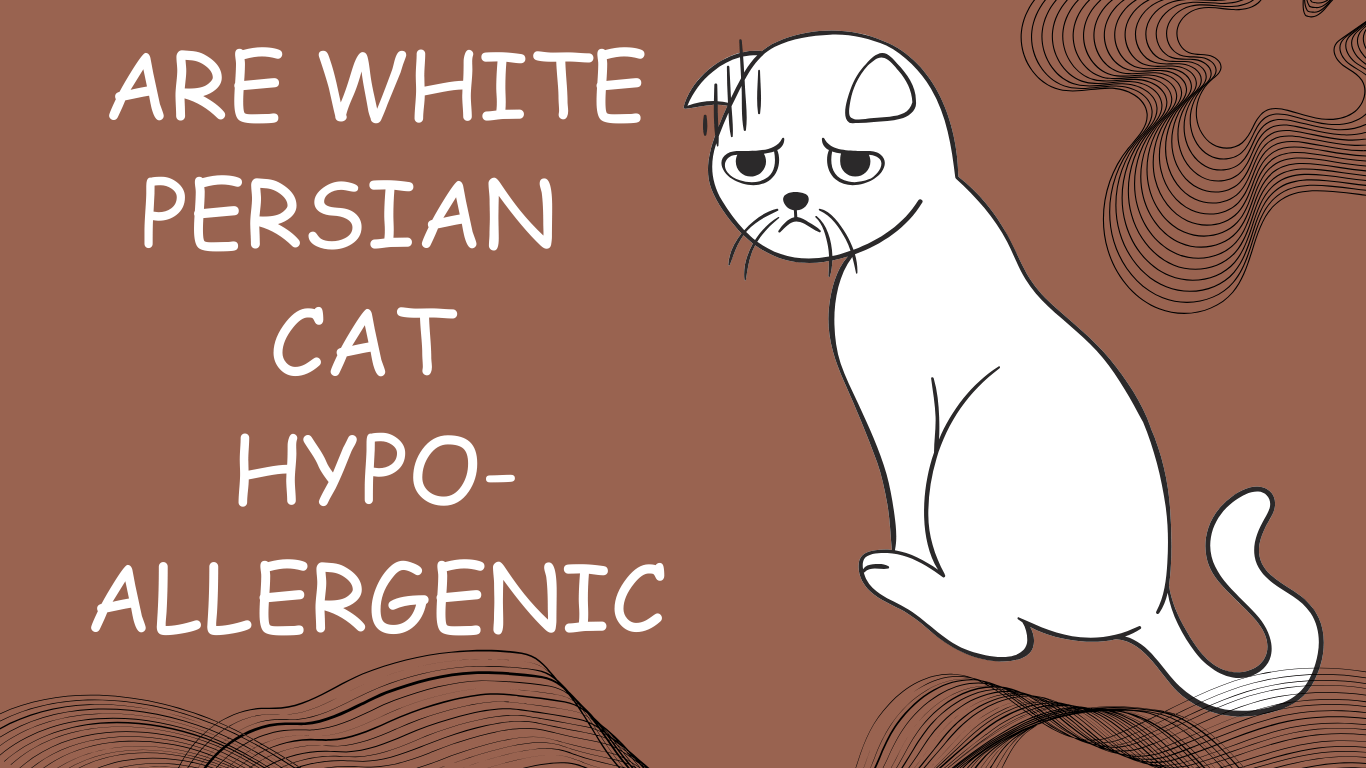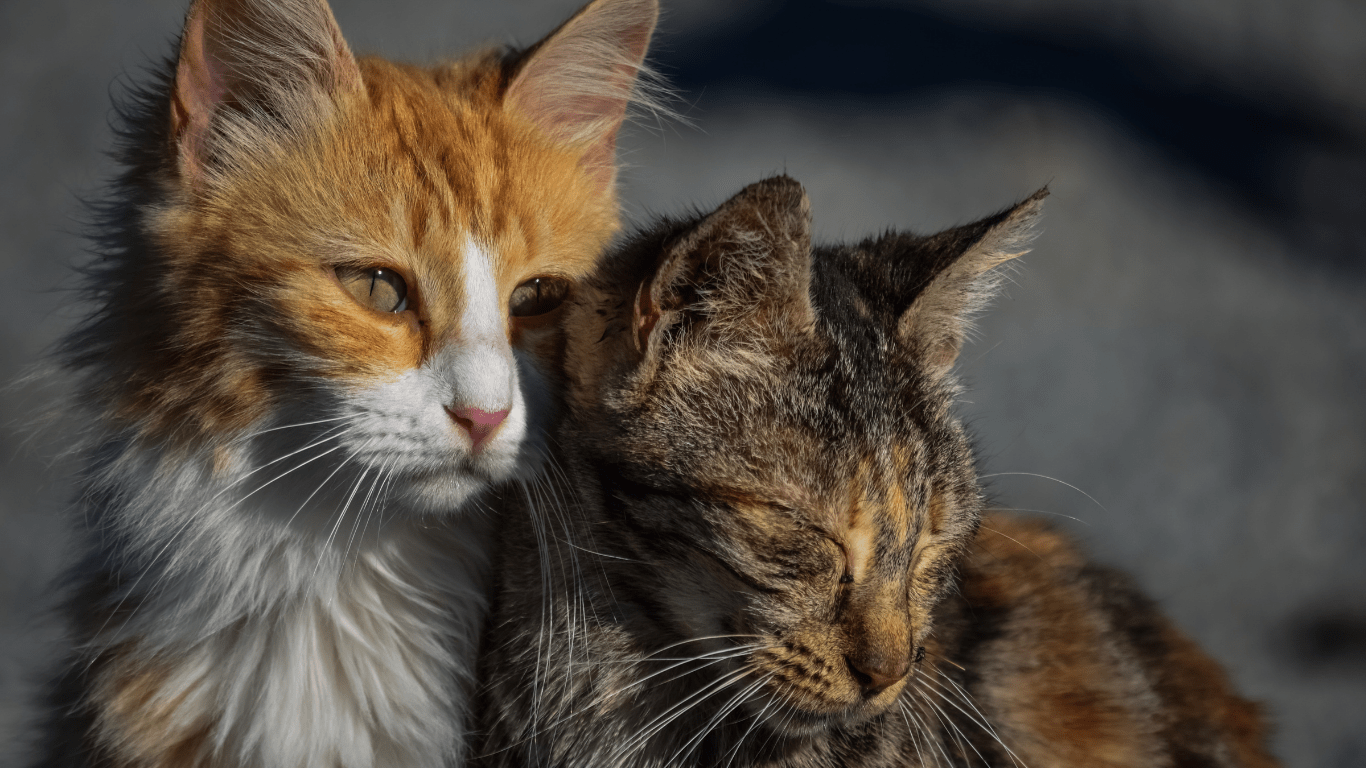Are white Persian Cats Hypoallergenic
It is not believed that white Persian cats are hypoallergenic. Even though no cat is completely free of allergens, Persian cats tend to produce more allergens because of their long fur and the amount of grooming they need, which can spread allergens like saliva and dander. If you’re looking for a cat that might be better for allergy sufferers, you might want to consider breeds known to produce fewer allergens, such as the Siberian or Balinese.

What Are Cat Allergies?
Whether you or a member of your family suffers from cat allergy symptoms, living with them can bring up a lot of questions. Could your son’s persistent cold symptoms be caused by a cat allergy? Despite your allergies, would you regret giving in to your daughter’s wishes for a kitten? Will a so-called hypoallergenic cat allow you to have the pet you’ve always wanted without making you a sneezing, sniffling mess?
Is There a Cat That Is Hypoallergenic?
Although there is no such thing as a hypoallergenic cat, some breeds may be less likely to cause allergies, according to anecdotal findings. This is in part because they shed less than average, but most importantly, it’s because their bodies naturally contain allergenic proteins. Fel D 1, a protein that triggers allergies, is produced by all cats. The majority of cat allergy sufferers are allergic to the proteins in cats’ urine, saliva, and dander (skin flakes), not the fur. Some of these allergens can be decreased by routinely cleaning the parts of your house where your cat spends a lot of time.
Best breeds for Allergy Persian cats.
Siberian
Surprisingly, the Siberian cat produces fewer allergens than many other cat breeds, despite having a plush and fluffy coat.
Rex of Devon The Devon Rex has short, soft, and wavy fur. Because they have less cat hair and groom less frequently, they’re less likely to spread allergens in your home.
Siamese Cat
Anecdotal data suggests that Siamese cats reduce the spread of allergens by producing fewer cat allergens and shedding less due to their short coats.
LaPerm
The LaPerm is a special breed of cat with curly fur that sheds less than other kinds, which can help stop dander from spreading.
Russian Blue
The Russian blue cat breed is ideal for people with minor cat allergies because it is typically calm. They usually only need to be brushed once a week, and their glossy, soft coat sheds very little. These calm and kind cats frequently enjoy sitting with their favorite people so they can get stroked.
Rex Cornish
Like the Devon Rex, the Cornish Rex has only a fine undercoat that sheds minimally, reducing the spread of allergens.
Additional resources for cat lovers who are allergic If you’re dealing with allergies but still want to enjoy the companionship of a feline friend, don’t lose hope. There are numerous resources available to assist you in overcoming this obstacle. There is a wealth of information available to assist you in living a harmonious life with a cat, from professional advice from allergists and veterinarians to online communities and forums where you can share your experiences and tips with other people who love allergic cats.

Conclusion
It can be difficult, but it is not impossible, to select the ideal cat breed for allergy sufferers. You can find a feline companion that won’t make your allergies worse if you look for the right information and give it careful consideration. Keep in mind that spending time with the cat before adopting, keeping your home as clean as possible, and speaking with an allergist if necessary are the most important things. You can have a happy and healthy coexistence with your new pet by following these instructions.
Faqs
Do white cats have health problems?
Without protective pigments, their skin is much more vulnerable to the harmful effects of ultraviolet (UV) rays. White cats are susceptible to sunburn, especially on bright days, especially on exposed parts like their noses and ears. Long-term exposure to the sun can potentially cause skin cancer.
How long does a white cat live?
According to the ASPCA, indoor white cats have a lifespan of 13–17 years, which is comparable to that of any other cat breed. Albino cats also have normal lifespans as long as they dwell inside.
Why are white cats so special?
White cats are among the rarest; they only make up around 5% of all cats. They look stunning and incredibly different with their beautiful snow-white coats, and their families, who adore them, naturally find them even more remarkable.

